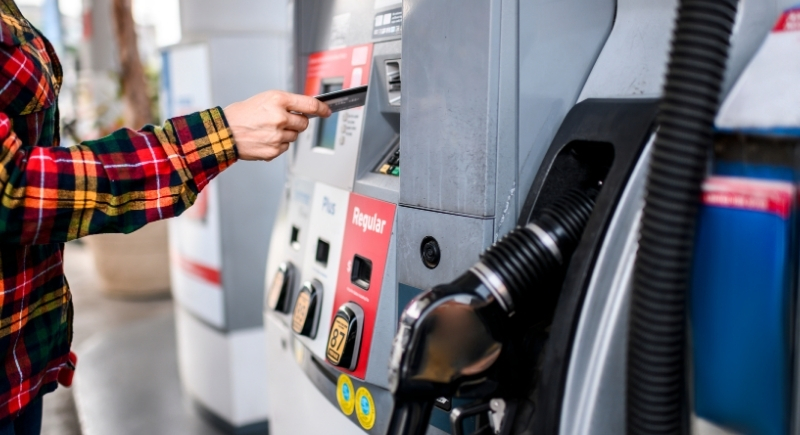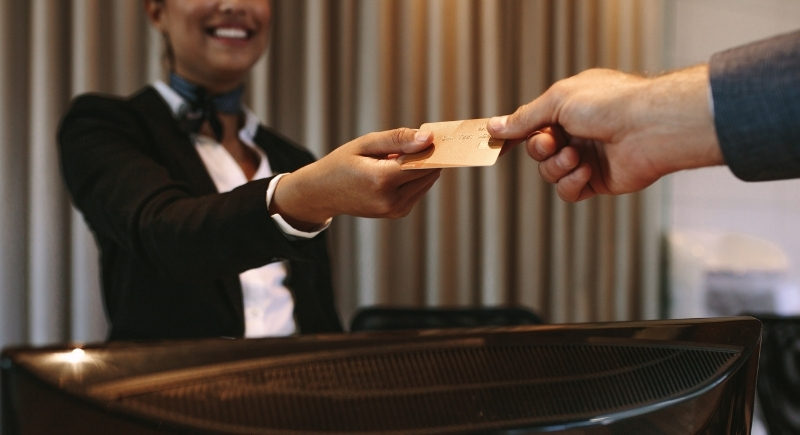8 Places You Should Never Use Your Debit Card
Using a debit card feels safe because it comes straight from your checking account, but that link is also its biggest weakness. If fraud occurs, the stolen money is your own, not the bank’s. Federal rules give you only a short window to report problems, and waiting longer can raise your liability to hundreds of dollars.
Banks may eventually reimburse you, but investigations take time and leave you without funds in the meantime. Since payment crimes on online sites and in tourist-heavy spots are widespread, it pays to know where using a debit card carries the most risk.
Gas Stations

Image via Getty Images/Extreme Media
Gas pumps continue to be prime spots for skimming. Criminals attach discreet devices to the readers that copy card details when customers swipe. Many pumps still lack the chip technology that protects against this and rely on the magnetic stripe that is easier to exploit. In addition to fraud risks, stations also place authorization holds that exceed the actual purchase.
For example, a $20 fill-up may trigger a $75 temporary block, freezing access to the difference until the transaction clears. Paying inside at the register, using a credit card, or opting for a contactless method like Apple Pay reduces both fraud risk and account holds. Choosing stations in busy, well-lit areas further lowers the chance of tampered equipment going unnoticed.
Restaurants and Bars

Image via Getty Images/Vladimir Vladimirov
Handing your debit card to a server takes it out of your control, and that brief moment is enough for someone to copy the details. Unauthorized devices can capture information before the card comes back to the table.
Many restaurants also include amounts larger than the bill to account for gratuity, which temporarily reduces your available funds. Some establishments now use tableside terminals that allow you to keep the card in sight, thereby lowering the chance of unauthorized charges.
Online Shopping
You may not be aware, but e-commerce consistently ranks among the top categories for security breaches, with criminals exploiting website breaches and phishing tactics to capture payment information. Once your debit details are stolen, funds vanish directly from your bank account. Unlike credit cards, which offer strong dispute rights and limited liability, debit cards leave you waiting through the bank’s investigation before money is restored.
Keep in mind that only trusted merchants with encryption should ever receive payment details. Even then, credit offers stronger protection if items arrive damaged, incorrect, or not at all.
Hotels and Vacation Rentals

Image via Canva/Jacob Lund
When on vacation, the last thing you need is frozen funds. Hotels typically place holds well above the room rate to cover potential charges, which locks up money in your checking account for several days. Vacation rentals introduce different hazards, including fake listings that disappear after taking payment. Even legitimate properties can create issues when deposits or installment payments reduce your available balance unexpectedly.
ATMs and Tourist Areas
Non-bank ATMs are also common targets for card skimming. Machines inside convenience stores, bars, or restaurants often lack monitoring and allow tampered equipment to remain unnoticed. Even bank-owned ATMs face risk, with criminals installing devices that appear to be part of the machine. Covering the keypad while entering your PIN helps, but spotting alterations is not always easy.
Tourist-heavy locations add to the risk, since crowds allow perpetrators to operate undetected, and payment terminals may be outdated or poorly secured. Festivals and pop-up events add another layer, with fake ticket sellers and counterfeit payment systems tricking attendees.